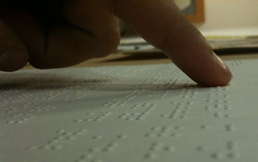Podcast for 13 May 2011 – Neuropsychology
Researchers erase sea snail memories, the brain's sarcasm detector, why a lack of embarrassment could be a sign of dementia, and schizophrenia in a petri dish.


Researchers erase sea snail memories, the brain's sarcasm detector, why a lack of embarrassment could be a sign of dementia, and schizophrenia in a petri dish.

Cultural revolutions in humpback whale songs, a barcode scanner for zebra stripes, a prehistoric toothache, and changing skull sizes in the Iberian Peninsula.
Over the past few centuries, women's skulls have grown closer to the size of men's, at least in one part of the world.
Zebra stripes resemble barcodes, and could help researchers keep track of each member of the herd.

An automatic insect detection system that uses a variety of technologies could help monitor insect infestations.
Genetically engineered bacteria could help ferry drugs to where they’re needed most in the body.
A delicious, but neglected fruit could get its day in the sun again with a bit of genetic engineering.

The immune systems of chronically lonely people switch from fighting viruses to fighting bacterial infections.

The surprising way the brain processes Braille, bilingualism staves off dementia, and new research on stuttering. Also: why being lonely could change how your immune system works, and the relationship between popularity and bullying.
At least one carnivorous plant appears to have lost its taste for insects in favor of bat guano.

Left-handers suffer more from learning disabilities but can also excel in spatial visualization.
The discovery of a female pterodactyl with an egg in China is making paleontologists take a second look at old fossil collections.
ANIMAL STORIES: An Australian bird benefits when its predator sings, what happens when bees get sleepy, the invasion of the giant fish, eating insects to slow global warming, and a female pterodactyl fossil is discovered in China.
A new study reflects an alarming lack of science literacy among U.S. college students.
